CWT assists members in getting 10.1 million pounds of export sales contracts
December 07, 2015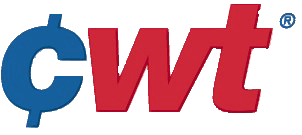 Cooperatives Working Together assisted member cooperatives in November in getting 18 contracts to sell 4.786 million pounds of cheese and 5.331 million pounds of whole milk powder to customers in Asia and South America. The product will be shipped from November 2015 through May 2016.
Cooperatives Working Together assisted member cooperatives in November in getting 18 contracts to sell 4.786 million pounds of cheese and 5.331 million pounds of whole milk powder to customers in Asia and South America. The product will be shipped from November 2015 through May 2016.
These sales contracts bring CWT’s totals through October 2015 to 53.7 million pounds of cheese, 25.7 million pounds of butter and 40.4 million pounds of whole milk powder. In total, CWT-assisted transactions will move the equivalent of 1.368 billion pounds of milk on a milkfat basis to customers in 35 countries on five continents. These totals are adjusted for contract cancellations.
Developed by NMPF, CWT’s export assistance program is supported on a voluntary basis by dairy farmers across the nation. By helping to move U.S. dairy products into world markets, CWT helps maintain and grow U.S. dairy farmers’ share of these expanding markets which, in turn, works to keep dairy farmer milk prices at reasonable levels.
Renewal of the CWT program for the period 2016-2018 is underway. All cooperatives and dairy farmers are encouraged to add their support to this important program. Membership forms are available on the CWT website.
NMPF’s Ryan Bennett Promoted to Senior Director of Industry & Environmental Affairs
December 07, 2015Ryan Bennett was recently promoted to Senior Director of Industry & Environmental Affairs for NMPF, following three years as Director of Government Relations. In his new position, Bennett will focus on two critical areas of growing interest to NMPF members: animal care and environmental issues.
Bennett now works with Vice President of Animal Care Emily Meredith to enhance and expand NMPF’s FARM Program. He focuses extensively on farm and processor engagement, including evaluator training, participant outreach, managing the new and expanded database, and developing FARM program materials.
On the environmental side, Bennett works with Clay Detlefsen, Senior Vice President of Regulatory & Environmental Affairs for NMPF, to advance the organization’s work with the newly created Newtrient LLC, addressing on-farm environmental issues related to manure management.
NMPF Hosts Webinar on FSMA Preventive Controls for Human Food Rule
December 07, 2015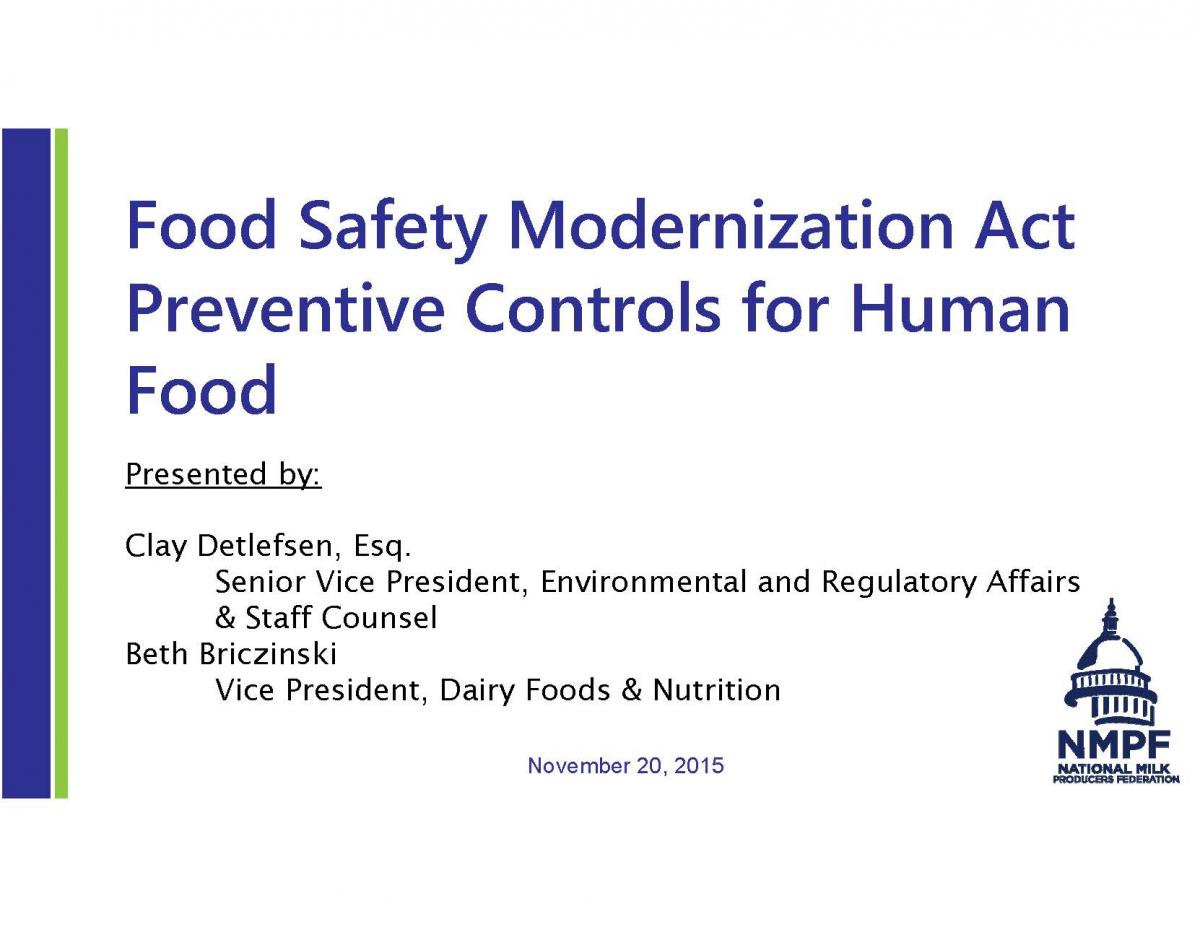 On Nov. 20, NMPF conducted its first Food Safety Modernization Act (FSMA) webinar. Clay Detlefsen, Senior Vice President of Regulatory & Environmental Affairs, and Beth Briczinski, Vice President of Dairy Foods & Nutrition, presented on the Preventive Controls for Human Food (PCHF) rule — the most significant of the seven major FSMA rules.
On Nov. 20, NMPF conducted its first Food Safety Modernization Act (FSMA) webinar. Clay Detlefsen, Senior Vice President of Regulatory & Environmental Affairs, and Beth Briczinski, Vice President of Dairy Foods & Nutrition, presented on the Preventive Controls for Human Food (PCHF) rule — the most significant of the seven major FSMA rules.
The preventive controls rule requires human food facilities to develop food safety plans that indicate any problems that could affect the safety of their products, then outline steps the facility would take to minimize the likelihood of those problems occurring.
Detlefsen and Briczinski outlined the rule’s requirements and provided some background on how it was developed, emphasizing that there is still considerable uncertainty about how effective and burdensome the PCHF rule will be. A much better assessment will be made when FDA releases numerous guidance documents on hazard analysis, preventive controls, allergen control and environmental monitoring, they said. However, there is no set date for the release of these documents.
NMPF plans to replicate this educational tool for other FSMA rules and guidance documents in the coming months, to ensure that cooperatives are well informed on the implications of the FSMA regulations.
NMPF Opposes Latest ‘Added Sugars’ Proposal from FDA
December 07, 2015NMPF has opposed the Food and Drug Administration’s latest proposal to revise the Nutrition Facts Panel to include an amount and percent Daily Value for “added sugars” on the label for consumers.
In comments sent to the agency in October, NMPF disagreed with the FDA that its proposal will help consumers make better food choices and improve their diets, noting the FDA itself has concluded there is no scientific basis for a recommended daily intake for added sugars.
As with comments submitted last summer on FDA’s original proposal, NMPF again emphasized that the FDA incorrectly and inappropriately extended the definition of “added sugars” to include the lactose in many concentrated and dried dairy ingredients, even though lactose is a naturally-occurring sugar and is not used primarily as a sweetener.
“FDA’s proposed definition of ‘added sugars’ falls woefully short in this regard and leaves our industry confused and ill-served . . . .” the Federation said. It encouraged FDA to rewrite its added sugars definition “or risk significant consumer misunderstanding . . . ”
FARM Program Participates in First-Ever Antibiotics Awareness Week, Releases Drug Residue Prevention Manual
December 07, 2015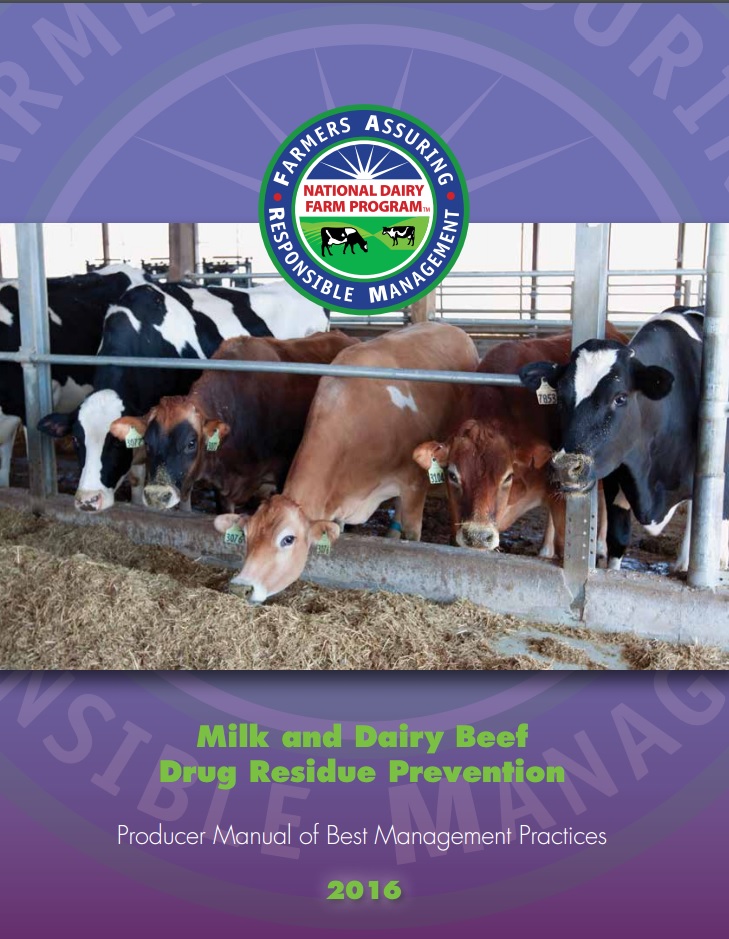 In honor of the first national Antibiotic Awareness Week, NMPF’s FARM Program participated in a social media drive to educate farmers and consumers on the proper use of antibiotics in animals. It also released an updated manual on drug residue prevention.
In honor of the first national Antibiotic Awareness Week, NMPF’s FARM Program participated in a social media drive to educate farmers and consumers on the proper use of antibiotics in animals. It also released an updated manual on drug residue prevention.
From Nov. 16-22, the Centers for Disease Control and Prevention and the World Health Organization hosted educational campaigns on antibiotic resistance. FARM focused its campaign on the agriculture sector. The program’s Facebook and Twitter accounts featured graphics, videos and facts about safely administering drugs to sick farm animals.
To coincide with this event, the FARM Program released its 2016 Milk and Dairy Beef Drug Residue Prevention Manual – one of the key components of the program. The manual offers a concise review of appropriate antibiotic use in dairy animals, and can also be used as an educational tool for farm managers as they develop their best management practices necessary to avoid milk and meat residues.
“We know that there is increased attention to the use of medicines in livestock, and in order to maintain the ability to use those products to treat sick animals, we have to demonstrate that we are using them judiciously,” said Jim Mulhern, President and CEO of NMPF.
Comments Sought on Version 3.0 of the FARM Animal Care Manual
December 07, 2015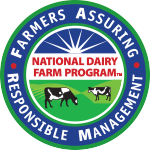 NMPF is looking for feedback on the third update to its reference manual from those participating in the National Dairy FARM (Farmers Assuring Responsible Management) Program. Open to all dairy farmers, co-ops and processors, the FARM Program sets the highest standards for dairy animal care. The reference manual, which outlines best management practices central to the program, is reviewed and reissued every three years.
NMPF is looking for feedback on the third update to its reference manual from those participating in the National Dairy FARM (Farmers Assuring Responsible Management) Program. Open to all dairy farmers, co-ops and processors, the FARM Program sets the highest standards for dairy animal care. The reference manual, which outlines best management practices central to the program, is reviewed and reissued every three years.
This fall, NMPF’s Animal Health and Well-being Committee approved edits to the manual suggested by the FARM Program Technical Writing Group, comprising academics, veterinarians, producers and co-op staff who reviewed the latest research, discussed feedback received from FARM Program evaluators and sifted through recommendations from large dairy customers.
The committee’s draft includes both minor and substantive edits to all 11 chapters of the manual. Those interested in providing comments on the draft Animal Care manual should utilize the comment form. All comments must be submitted to Emily Meredith, NMPF Vice President of Animal Care by Wednesday, January 6 at 5:00 pm.
FDA Rejects Mandatory Labeling of GMO Foods, Releases Own Recommendations
December 07, 2015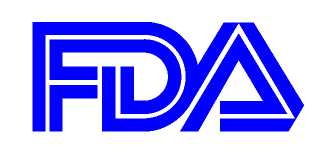 The conversation over genetically modified organisms flared up at the end of November, when the FDA made several big announcements on the issue. Most notably, it rejected a consumer activist petition seeking mandatory labeling of foods made with genetically modified ingredients, and then released its own recommendations on the voluntary labeling of GMO foods.
The conversation over genetically modified organisms flared up at the end of November, when the FDA made several big announcements on the issue. Most notably, it rejected a consumer activist petition seeking mandatory labeling of foods made with genetically modified ingredients, and then released its own recommendations on the voluntary labeling of GMO foods.
In its reason for the rejection, FDA said the petition did not provide enough evidence to show that foods derived from genetically modified ingredients present any different or greater safety concerns than foods developed traditionally.
By releasing its own recommendations for voluntary labeling, FDA said it recognized the desire of some consumers to know what goes into their food.
“These guidances provide recommended actions for manufacturers who may wish to voluntarily label their products with information about whether the foods contain ingredients from GE sources,” the agency said.
NMPF applauded both announcements in a statement.
“FDA’s rejection of the petition is a strong reaffirmation of the sound science policy underlying FDA’s approval process,” NMPF said. “Only products found to be safe for human or animal use should be approved. And if they are approved as safe, there is no basis for mandatory labeling.”
FDA also announced that it had approved genetically engineered salmon for human consumption, saying that the modified salmon is as nutritious and safe to eat as non-GMO salmon. This is the first GMO animal to be declared edible.
NMPF Urges Congressional Fix of COOL Program to Stave Off New Dairy Tariffs
December 07, 2015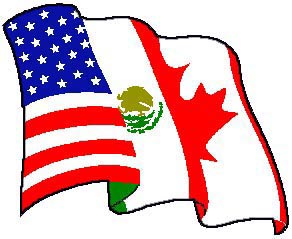 With the World Trade Organization announcing today that Canada and Mexico can slap $1 billion in new tariffs against U.S. exports, NMPF is pushing Congress to fix the country-of-origin labeling law for meat as soon as possible. The WTO said Monday morning that Canada may impose retaliatory tariffs of up $782 million, and Mexico may enforce $228 million in tariffs, on imported U.S. products to recoup damages caused by U.S. country-of-origin labeling rules for meat.
With the World Trade Organization announcing today that Canada and Mexico can slap $1 billion in new tariffs against U.S. exports, NMPF is pushing Congress to fix the country-of-origin labeling law for meat as soon as possible. The WTO said Monday morning that Canada may impose retaliatory tariffs of up $782 million, and Mexico may enforce $228 million in tariffs, on imported U.S. products to recoup damages caused by U.S. country-of-origin labeling rules for meat.
NMPF has been working with others in the dairy industry to urge the House and Senate to fix the COOL problem as part of the massive, year-end federal spending bill expected to be completed in the coming week. NMPF members are encouraged to contact their Capitol Hill representatives, stressing the importance of a fix as soon as possible in order to avoid the imposition of retaliatory tariffs on dairy sales to two of the U.S.’s largest export markets.
The WTO ruled against the U.S. meat labeling program last spring, saying Canada and Mexico had the right to respond with retaliatory tariffs on U.S. exports. American dairy products have been on Canada’s target list for retaliation, and the two countries could begin imposing new tariffs as soon as this month. The tariffs will come at a difficult time for U.S. exporters, who have faced a more challenging environment in 2015.
Five Other Dairy Producer Priorities Pending as Congress Nears Adjournment
December 07, 2015NMPF is currently working hard on Capitol Hill on a handful of other legislative items important to dairy producers. The following items may also be approved by Congress in the final weeks of its 2015 session:
- Extension of the Section 179 tax credit, which allows farmers and small business to write off capital purchase immediately instead of over time.
- Consideration of a biogas and resource recovery tax credit for farms which invest in nutrient recovery technologies that will remove valuable nutrients while mitigating the environmental impact of the farm operation.
- Repeal of the Country of Origin Labeling for meat, which is threatening to trigger damaging new tariffs on U.S. dairy products exported to Canada and Mexico [see story below].
- A requirement that the Agriculture Department act to stop the decline in milk consumption in schools, which could see a return of low-fat chocolate milk to cafeterias.
- Language exerting federal pre-emption over state laws requiring the labeling of foods with genetically modified ingredients.
- Legislation blocking the implementation of the controversial Waters of the U.S. regulation that is temporarily suspended by a court ruling.
Most of these items are candidates for inclusion in a massive year-end spending bill Congress is expected to pass before adjournment for the year.
Milk Truck Weight Amendment Included in New Highway Law Signed by President Obama
December 07, 2015 The highway transportation bill signed by President Obama last Friday includes a provision allowing milk trucks in some states to carry more dairy products without unloading some of their shipment at state borders – a development that will benefit dairy farmers and cooperatives.
The highway transportation bill signed by President Obama last Friday includes a provision allowing milk trucks in some states to carry more dairy products without unloading some of their shipment at state borders – a development that will benefit dairy farmers and cooperatives.
The bipartisan amendment, supported by NMPF, was sponsored by House Transportation and Infrastructure Committee members Richard Hanna (R-NY) and Elizabeth Esty (D-CT) and championed by committee member Reid Ribble (R-WI). It gives states the option to issue permits to milk haulers to increase their truck weights beyond Interstate Highway System limits. The permits, however, would still need to comply with each state’s trucking laws.
NMPF and the International Dairy Foods Association hailed inclusion of the dairy truck amendment as benefiting consumers as well as milk producers and processors.
“This provision recognizes the specific challenges in transporting milk,” said NMPF President and CEO Jim Mulhern. “Because both the supply of milk coming from farms, and the needs of processing plants, can fluctuate unpredictably, handling requirements sometimes conflict with limits on truck weights.”
“It’s great to see Congress support something beneficial to our producers,” Mulhern added. He indicated the provision will result in fewer trucks on the road, cutting costs for producers and processors and, ultimately, for consumers.





